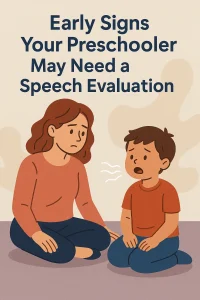Understanding & Parenting an Autistic Child: Guide & Tips
By Rajini D
Last Updated: November 27, 2021
Autism Spectrum Disorder or ASD is a developmental disorder that affects communication, social interaction and behavior in children. The term “spectrum” refers to a wide-range of symptoms and severity. Each child with Autism has a unique pattern of behavior and different level of severity. Autism can be high, moderate or low. Mild levels of Autism is called as Asperger’s syndrome in which the person maybe intelligent enough to handle his/her daily activities. The higher level of Autism is named as Pervasive developmental disorder whose Autism is more severe than the ones having Asperger’s syndrome. So, depending upon the severity and the patterns of behavior and the varied symptoms, each child defines Autism in his/her own way.
As their needs differ, every Autistic child has to be treated in a separate way. When you take your child to a psychologist for the Autism assessment, they spend considerable amount of time to assess the skills, behavior and symptoms of your Autistic child. With a team of psychologists, speech therapists, behavioral and occupational therapists, they come to a conclusion on what are the needs of your child and what needs to be done to meet them. It is then they prepare a program for treating your Autistic
child. The early the symptoms are recognized and the intervention is started, the better the outcome would be.
Know more about What do Speech and Language therapists do?
Comparison of Autism Levels
| Level of Autism | Characteristics | Common Challenges | Potential Strengths |
|---|---|---|---|
| High-Functioning Autism (Asperger’s Syndrome) | Good verbal skills, high IQ, intense interest in specific subjects. Struggles with social interactions. | Social awkwardness, difficulty in making friends, sensory sensitivities. | Exceptional memory and attention to detail, expertise in areas of interest. |
| Moderate Autism | May have verbal communication issues, noticeable difficulties with social interactions, adaptable to structured support. | Moderate difficulties in verbal and non-verbal communication, repetitive behaviors. | Good skills in visual and spatial areas, strong rote memory. |
| Severe Autism | Limited or absent verbal skills, significant challenges with social interactions, may show repetitive behaviors and have strong reactions to changes in routine. | Severe challenges in communication, requires substantial support for daily activities. | May excel in specific areas such as music or art, strong sensory perception skills. |
Explore our article on Inspiring Success Stories: Famous Personalities Thriving with Autism Spectrum Disorder
Tips for Parents
Apart from medical care and treatment, your Autistic child needs special care at home. Being a parent of an Autistic child, you are supposed to give some special attention to your kid who has really special needs. Such kids will get attached to those who tend to spend much time with them in the way they like. There are some important things that parents need to focus when you have an Autistic kid at home. Let’s throw some light on those things.
Explore more on How to find the right Autism therapy center for my child?
Positive Reinforcement
Just like any other kid, positive reinforcement encourages them too. Praise them by clapping and appreciate with a cookie or candy when they do something in a proper way. Specify why you are praising them and exhibit the happiness to convey that you are really impressed. Love them for who
they are and encourage their effort.
Also Read: How does Reinforcement work in Learning?
Positive Reinforcement Examples
| Action | Positive Reinforcement | Why It Works |
|---|---|---|
| Completing a task (e.g., homework) | Praise verbally and give a small reward (e.g., stickers, extra playtime) | Reinforces the behavior by associating it with positive outcomes, encouraging repetition of the task. |
| Trying a new food | Applause and a favorite dessert | Encourages stepping out of comfort zones by linking new experiences with positive rewards. |
| Sharing toys with siblings or friends | Positive verbal feedback and an extra story at bedtime | Strengthens social bonds and teaches the value of sharing by recognizing and rewarding empathetic behavior. |
| Dressing independently | Clapping and a choice of activity for the day | Promotes self-reliance and decision-making by rewarding independence with control over enjoyable activities. |
| Using words to express needs or feelings | Hugs and positive acknowledgment (e.g., “I’m proud of you for using your words.”) | Enhances communication skills by validating emotional expression and making it a rewarding experience. |
Stick to Routine
If you give them some fruit at 9am daily or if they take bath at 7am daily, let them do it by arranging what they need. Every Autistic child sticks to keep the routine and they strongly resist a change in their daily routine. You should never force them to change it as they would hate it and it could be a trigger for their behavioral changes in a violent way.

Read about Why should I follow a Routine amid lockdown?
Play and Learn
Make them learn while they play. In other words, playing should be more for them than making their schedule mere educational. While they are engaged in playful activities, they tend to get closer to you. Try some home-therapy exercises with them.
Also Read: What are the therapies offered to Autistic patients? | Therapies of Autism
Be Patient Enough
In case your child finds it hard to adopt what you are teaching him or what you are trying to make him learn, they will give up easily. When you force them to do it, they might grow aggressive because of the mental pressure they face. So, just give some time and try again later. You can never expect them to do it as immediately as they are asked to do.
Read more about on Parenting Styles | Child Psychology
Take them with you
While you go to some groceries shop nearby, or to a post office, take them along with you. Teach them with patience about the things around. Some parents feel embarrassed or uncomfortable taking them along but it is the best way to show them what the world around looks like. This helps them to in doing their chores or to run errands all by themselves.
Seek Support
Be in touch with your counselor to seek advice on the behavior of your child and how to tackle the situations with them. Know what he needs to be fed what colors evoke his emotions and what you need to take care of.
Also, take the support of your immediate family, your friends and neighbors when you are in need. Maintaining proper relations with all those around also makes your kid interested in keeping up social relationships. Grooming their social skills in this way also helps them practice their skills learned in the therapy sessions.
Also Read: Parents Guide to Sensory Integration and Occupational Therapy
Conclusion
Parenting an autistic child presents unique challenges and opportunities for growth, both for the child and the family. Understanding and addressing the individual needs of a child with Autism Spectrum Disorder (ASD) requires patience, flexibility, and a supportive environment. It is crucial for parents to focus on positive reinforcement, maintaining routines, and incorporating play into learning to foster development and ease daily transitions. Celebrating achievements, no matter how small, and sticking to a consistent schedule can significantly benefit children with ASD, providing them with a sense of security and accomplishment.
Seeking support from professionals is equally important. Organizations like Wellness Hub offer a comprehensive approach to autism care, providing access to a team of experienced psychologists, special educators, speech and language therapists, occupational therapists, and behavioral therapists. These professionals can assess, diagnose, and design personalized treatment plans tailored to the unique needs of each child. Leveraging such resources can empower parents with the strategies and support needed to navigate the challenges of autism. Ultimately, the goal is to enable every child with autism to reach their full potential, fostering independence, social skills, and personal growth within a nurturing and understanding environment.
Frequently Asked Questions:
1. What is Autism Spectrum Disorder (ASD)?
Autism Spectrum Disorder is a developmental disorder that impacts communication, social interaction, and behavior. The term “spectrum” signifies the wide range of symptoms and severity levels among individuals with ASD.
2. How early can autism be diagnosed in children?
Autism can be diagnosed as early as 18 months of age. Early recognition of symptoms and intervention can lead to more positive outcomes for children with autism.
3. What are the signs of autism in children?
Signs of autism in children can include delayed speech and language skills, limited eye contact, repetitive behaviors, and challenges with social interactions.
4. How can parents support their autistic child’s development?
Parents can support their child’s development by providing positive reinforcement, maintaining consistent routines, engaging in play-based learning, and seeking professional support from organizations like Wellness Hub.
5. Why is routine important for children with autism?
Routine provides a sense of structure and security for children with autism, helping to reduce anxiety and manage expectations. Consistent schedules can also aid in the development of daily living skills.
6. How can playing help in the development of an autistic child?
Play-based learning can help autistic children improve their social skills, language development, and emotional regulation by providing a fun and engaging way to explore and learn.
7. What professional support is available for parents of autistic children?
Professional support may include psychologists, special educators, speech and language therapists, occupational therapists, and behavioral therapists who can assess, diagnose, and create personalized treatment plans.
8. What is the role of positive reinforcement in parenting an autistic child?
Positive reinforcement encourages desirable behaviors by rewarding them with praise, treats, or other incentives, thereby promoting repetition of those behaviors.
9. How can parents help their autistic child with social skills?
Parents can help by modeling appropriate social interactions, encouraging play with peers, and practicing social skills in a variety of settings.
10. Why is it important to seek support when parenting an autistic child?
Seeking support from professionals and the community can provide parents with the resources, strategies, and emotional support needed to navigate the challenges and celebrate the joys of raising an autistic child.
About the Author:
Rajini, Speech-Language Pathologist:
Rajini is a dedicated Speech-Language Pathologist with a focus on developmental speech and language disorders in children and rehabilitation in adults. With a passion for helping each individual find their voice, Rajini brings a wealth of experience and a heartfelt approach to therapy. At Wellness Hub, she’s part of a team that values innovation, compassion, and results-driven practices.
Book your Free Consultation Today
Parent/Caregiver Info:
Client’s Details:
* Error Message









